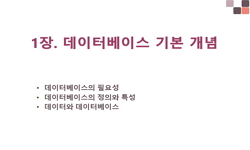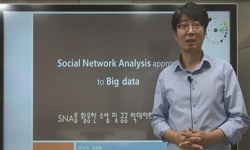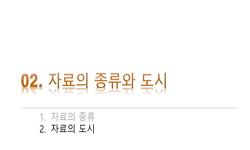The iWeb corpus contains nearly 14 billion words from 22 million web pages, and it has been designed in a way that allows users to quickly and easily create “Virtual Corpora”, in order to focus on websites that are related to their areas of intere...
http://chineseinput.net/에서 pinyin(병음)방식으로 중국어를 변환할 수 있습니다.
변환된 중국어를 복사하여 사용하시면 됩니다.
- 中文 을 입력하시려면 zhongwen을 입력하시고 space를누르시면됩니다.
- 北京 을 입력하시려면 beijing을 입력하시고 space를 누르시면 됩니다.
https://www.riss.kr/link?id=A106103199
-
저자
Mark Davies (Brigham Young University) ; Jong-Bok Kim

- 발행기관
- 학술지명
- 권호사항
-
발행연도
2019
-
작성언어
-
- 주제어
-
KDC
701
-
등재정보
KCI등재,SCOPUS,ESCI
-
자료형태
학술저널
-
수록면
1-34(34쪽)
-
KCI 피인용횟수
0
- DOI식별코드
- 제공처
- 소장기관
-
0
상세조회 -
0
다운로드
부가정보
다국어 초록 (Multilingual Abstract)
The iWeb corpus contains nearly 14 billion words from 22 million web pages, and it has been designed in a way that allows users to quickly and easily create “Virtual Corpora”, in order to focus on websites that are related to their areas of interest. The data from this very large corpus provides very detailed information on syntactic, morphological, lexical, and semantic phenomena, in ways that would never be possible with a small 100 million or 500 million word corpus. In addition, the corpus provides a number of features that are not available with other large corpora, such as the ability to perform advanced searches of the top 60,000 words in the corpus, and to see a wealth of information on each of these words – definitions, links to images and audio, translations, detailed frequency information, related topics, collocates, word clusters, re-sortable concordance lines, and much more. Finally, we discuss the challenges of large corpora, and how the corpus architecture that is used for iWeb has uniquely been designed to address these challenges.
목차 (Table of Contents)
- 1. Introduction 2. Creating the iWeb corpus 3. The advantages of very large corpora for syntax and morphology 4. The advantages of very large corpora for lexis and meaning 5. The challenges of very large corpora 7. Conclusion
- 1. Introduction 2. Creating the iWeb corpus 3. The advantages of very large corpora for syntax and morphology 4. The advantages of very large corpora for lexis and meaning 5. The challenges of very large corpora 7. Conclusion
참고문헌 (Reference)
1 Stange, Ulrike, "You’re so not going to believe this: The use of genx so in constructions with future going to in American English" 92 : 487-524, 2017
2 Mair, Christian, "Three changing patterns of verb complementation in late modern English: A real-time study based on matching text corpora" 6 : 106-131, 2002
3 Kim, Jong-Bok, "The into-causative construction in English: A construction-based perspective" 20 : 55-83, 2016
4 Rudanko, Juhani, "The Oxford Handbook of the History of English" Oxford University Press 222-232, 2012
5 Barbieri, Federica, "Quotative 'be like' in American English: Ephemeral or here to stay?" 30 : 68-90, 2009
6 Buchstaller, Isabelle, "Localized globalization: A multi-local, multivariate investigation of quotative 'be like'" 13 : 291-331, 2009
7 Vosberg, Uwe, "Insights into Late Modern English" Peter Lang 197-220, 2003
8 Davies, Mark, "Historical shifts with the into-causative construction in American English" 57 : 29-58, 2019
9 Tagliamonte, Sali, "He's like, she's like: The quotative system in Canadian Youth" 8 : 493-514, 2004
10 Goldberg, Adele, "Grammatical constructions: Their form and meaning" Clarendon Press 29-53, 1997
1 Stange, Ulrike, "You’re so not going to believe this: The use of genx so in constructions with future going to in American English" 92 : 487-524, 2017
2 Mair, Christian, "Three changing patterns of verb complementation in late modern English: A real-time study based on matching text corpora" 6 : 106-131, 2002
3 Kim, Jong-Bok, "The into-causative construction in English: A construction-based perspective" 20 : 55-83, 2016
4 Rudanko, Juhani, "The Oxford Handbook of the History of English" Oxford University Press 222-232, 2012
5 Barbieri, Federica, "Quotative 'be like' in American English: Ephemeral or here to stay?" 30 : 68-90, 2009
6 Buchstaller, Isabelle, "Localized globalization: A multi-local, multivariate investigation of quotative 'be like'" 13 : 291-331, 2009
7 Vosberg, Uwe, "Insights into Late Modern English" Peter Lang 197-220, 2003
8 Davies, Mark, "Historical shifts with the into-causative construction in American English" 57 : 29-58, 2019
9 Tagliamonte, Sali, "He's like, she's like: The quotative system in Canadian Youth" 8 : 493-514, 2004
10 Goldberg, Adele, "Grammatical constructions: Their form and meaning" Clarendon Press 29-53, 1997
11 Rohdenburg, Gunter, "Functional constraints in syntactic change: The rise and fall of prepositional constructions in early and late modern English" 88 : 217-233, 2007
12 Rudanko, Juhani, "Corpora and complementation: Tracing sentential complementation patterns of nouns, adjectives, and verbs over the last three centuries" University Press of America 2000
13 Israel, Michael, "Conceptual structure, discourse and language" CSLI 217-230, 1996
동일학술지(권/호) 다른 논문
-
- 경희대학교 언어정보연구소
- Joo-Kyeong Lee
- 2019
- KCI등재,SCOPUS,ESCI
-
- 경희대학교 언어정보연구소
- Eunjin Oh
- 2019
- KCI등재,SCOPUS,ESCI
-
Rethinking the teaching of grammar from the perspective of corpus linguistics
- 경희대학교 언어정보연구소
- Chongwon Park
- 2019
- KCI등재,SCOPUS,ESCI
-
Coercion and language change: A usage-based approach
- 경희대학교 언어정보연구소
- Soyeon Yoon
- 2019
- KCI등재,SCOPUS,ESCI
분석정보
인용정보 인용지수 설명보기
학술지 이력
| 연월일 | 이력구분 | 이력상세 | 등재구분 |
|---|---|---|---|
| 2023 | 평가예정 | 해외DB학술지평가 신청대상 (해외등재 학술지 평가) | |
| 2020-01-01 | 평가 | 등재학술지 유지 (해외등재 학술지 평가) |  |
| 2013-01-01 | 평가 | 등재학술지 유지 (등재유지) |  |
| 2012-09-18 | 학회명변경 | 영문명 : Center for the Study of Language and Information -> Institute for the Study of Language and Information |  |
| 2010-05-17 | 학회명변경 | 한글명 : 언어연구소 -> 언어정보연구소영문명 : Center for the Study of Language -> Center for the Study of Language and Information |  |
| 2010-01-01 | 평가 | 등재학술지 선정 (등재후보2차) |  |
| 2009-03-23 | 학술지명변경 | 외국어명 : 미등록 -> Linguistic Research |  |
| 2009-01-01 | 평가 | 등재후보 1차 PASS (등재후보1차) |  |
| 2007-01-01 | 평가 | 등재후보학술지 선정 (신규평가) |  |
학술지 인용정보
| 기준연도 | WOS-KCI 통합IF(2년) | KCIF(2년) | KCIF(3년) |
|---|---|---|---|
| 2016 | 0.42 | 0.42 | 0.45 |
| KCIF(4년) | KCIF(5년) | 중심성지수(3년) | 즉시성지수 |
| 0.4 | 0.43 | 1.123 | 0.1 |





 KCI
KCI 스콜라
스콜라







